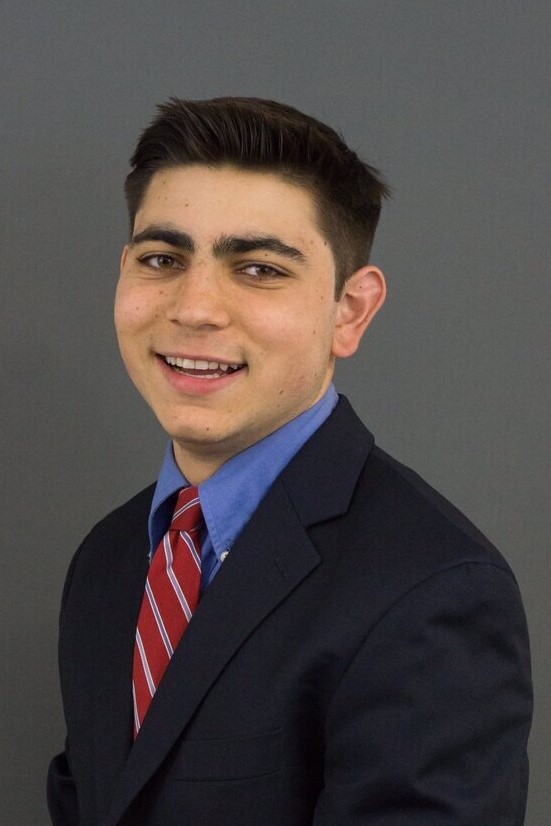Life is a story.
So what is my story?
Well, here’s a fun fact: I couldn’t speak until I was 4 years old.
Instead of attending a traditional preschool, I was placed in a school that specialized in dealing with kids who were deaf and mute. I remember a teacher talking to my parents, saying, “Do not put him in public school, he won’t succeed there.” Even though I couldn’t speak and let her know how I felt about that, her words lit a fire inside of me to overcome my disability and prove her wrong.
After fighting my way into public school, I was forced to quickly improve my speech. I remember my speech classes like yesterday — right after lunch, while my classmates had rest time, I would get pulled aside for speech class. On Saturday mornings, I’d attend speech therapy sessions where I had to practice speech drills. On Tuesday and Thursday afternoons after school, I met with another speech therapist, who would come to my house weekly and would make me practice speaking in complete sentences.
Now, why do I bring this up?
Well, here’s how the rest of the story goes. That same kid who couldn’t speak until he was 4 years old, the kid with major speech problems, soon transformed into a kid who’d go on to host his own sports talk show on BTV Channel 6 and two radio shows on WHRW 90.5 FM, become the sports director of WHRW and emerge as a major contributor to the Sports section of Pipe Dream. This would be the same kid who got one of his articles featured on “The Tony Kornheiser Show.” My communication skills went from being my worst enemy to one of my greatest strengths.
Challenges and adversity are often necessary ingredients in stories — without these conflicts, there is no story. If I had never embraced the challenge of improving my speaking skills when I was younger, it is likely that I would have never developed my communication skills further. As a result, I never would have become a host of multiple sports and radio shows during my time at Binghamton University.
We all have these stories. The best part about our stories is that we get to decide what gets written. Although we aren’t all newspaper authors, we’re all the authors of our own story. You may not get to choose the beginning of the story and your initial circumstances, but you always have the power to choose the ending.
Although my story is certainly far from over, my time at college is approaching its end. Entering BU as a freshman in Harpur College of Arts and Sciences, I always assumed that I’d pursue a career in business. Eventually, I transferred into the School of Management my sophomore year, declaring accounting as my major. However, I must concede that there is a magical power within the sports realm that may keep me away from the business world.
First, let me throw it out there that I was never exceptionally amazing at sports. In fact, I was horrendous at most sports when I was little. My best position was usually left bench. But what made it all worth it? Well, after the games, the coach would treat us to ice cream. Who could ever refuse a soft serve chocolate and vanilla swirl in a waffle cone?
In all seriousness, sports contain powerful and inspiring stories. From Kobe Bryant’s philosophy of “Mamba Mentality,” to Tom Brady’s underdog story after being selected in the sixth round to Craig Sager’s battle with leukemia, sports contain their fair share of stories with challenges and adversities. However, there is a clear reason why we always vote for the underdogs. Those who are presented with challenges are also presented with the opportunities that arise from embracing their challenges.
Although this was a difficult year for many of us in this COVID-19-stricken time, I managed to do something right by joining Pipe Dream in my final year of college.
Ed, I appreciate you fully embracing me in the Sports section at Pipe Dream. I have grown significantly as a writer under your leadership. Additionally, you’ve always had my best interests at heart, and that is something I am extremely grateful for.
Joe, I appreciate you taking me under your wing during the men’s basketball season in the winter. Your constructive feedback was always on point, and my writing improvements over this year are owed in large part to you. I know you will do a great job next year as Sports editor for Pipe Dream.
Of course, I need to shout out ESPN’s Tony Kornheiser for featuring my cardboard cutout article in late December. If you somehow see this, Tony, the shoutout on your podcast episode “Apparently I don’t know Mike Breen” was one of the highlights of my time at Pipe Dream.
Although my chapter of college has already been written, the next chapter is a blank canvas. My next chapter can be anything from being a sports television host on ESPN, an accountant or even a high school teacher. Amid the uncertainty, I will be forever grateful for the relationships that I have built while attending BU.
Samuel Israel is a senior double-majoring in accounting and politics, philosophy and law.



